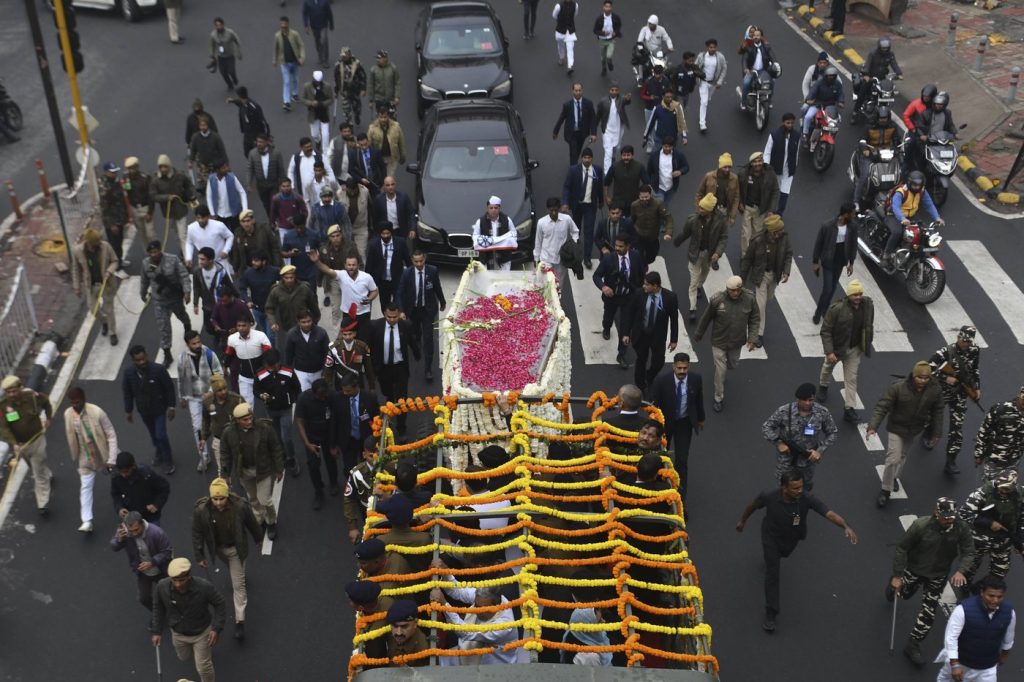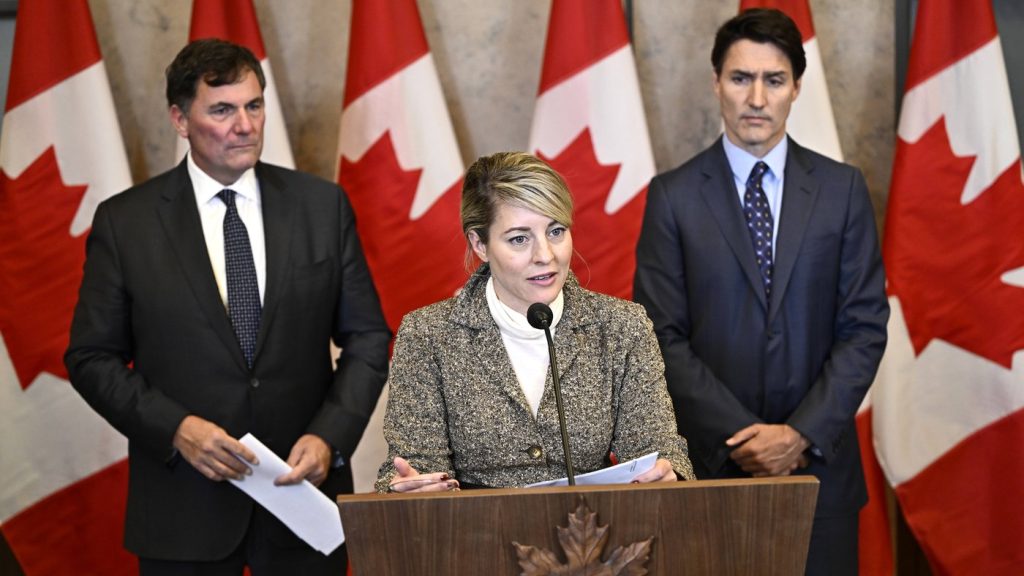State funeral begins for former Indian Prime Minister Manmohan Singh, who instituted economic reform

Posted Dec 28, 2024 01:50:03 AM.
NEW DELHI (AP) — The state funeral for Manmohan Singh, the former Indian prime minister widely regarded as the architect of the country’s economic reform program, began Saturday as politicians and the public mourned his death.
The veteran leader, who was also credited for a landmark nuclear deal with the United States, died late Thursday at age 92.
Singh’s body was taken Saturday morning to the headquarters of his Congress party in New Delhi, where party leaders and activists paid tributes to him and chanted “Manmohan Singh lives forever.”
Abhishek Bishnoi, a party leader, said Singh’s death was big loss for the country. “He used to speak little, but his talent and his actions spoke louder than his words,” he said.
Later, Singh’s body was transported to a crematorium ground for his last rites as soldiers beat drums.
Authorities declared a seven-day mourning period and canceled all cultural and entertainment events during that time. Government buildings across India are flying the national flag at half-staff.
A mild-mannered technocrat, Singh was prime minister for 10 years and leader of the Congress party in Parliament’s upper house, earning a reputation as a man of great personal integrity. He was chosen to be prime minister in 2004 by Sonia Gandhi, the widow of assassinated Prime Minister Rajiv Gandhi.
Singh was reelected in 2009, but his second term was clouded by financial scandals and corruption charges over the organization of the 2010 Commonwealth Games. This led to the Congress party’s crushing defeat in 2014 national elections by the Hindu nationalist Bharatiya Janata Party under the leadership of Narendra Modi.
Singh adopted a low profile after relinquishing the post of prime minister.
As finance minister, Singh in 1991 instituted reforms that moved India away from a socialist-patterned economy and toward a capitalist model in the face of a huge balance of payments deficit, skirting a potential economic crisis.
Singh was the first Sikh to hold the country’s top post and made a public apology in Parliament for the 1984 Sikh Massacre in which some 3,000 Sikhs were killed after then-Prime Minister Indira Gandhi was assassinated by her Sikh bodyguards.
In a move hailed as one of his biggest achievements apart from economic reforms, Singh ended India’s nuclear isolation by signing a deal with the U.S. that gave India access to American nuclear technology.
But the deal hurt his coalition government, with Communist allies withdrawing their support and criticism of the agreement growing within India in 2008 when it was finalized.
Aijaz Hussain, The Associated Press








